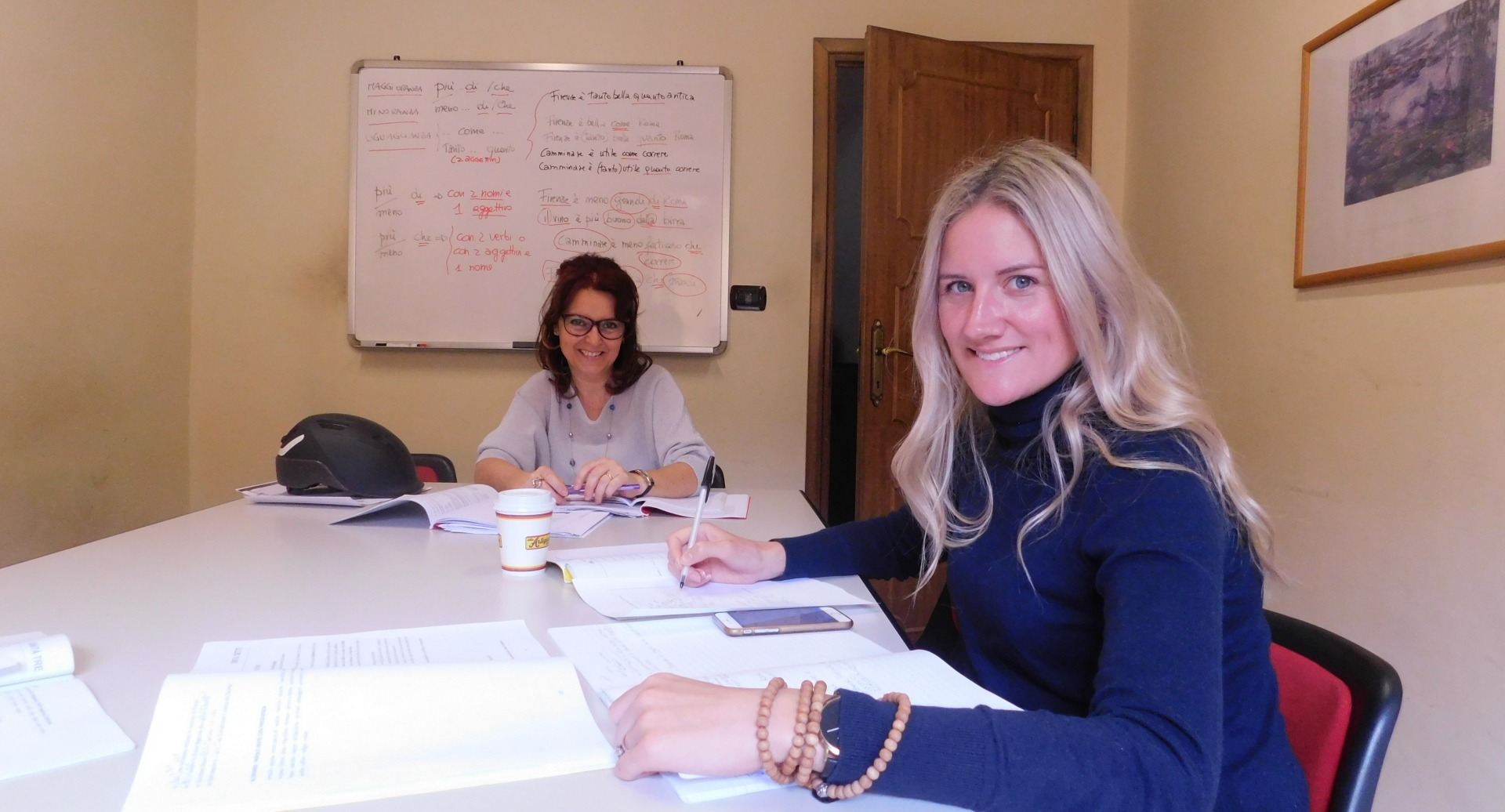
Some Curiosities By Silvia About Italian
Our Italian language teacher Silvia has considered the way in which some Italian words may change depending on the context they are inserted in.
In our Italian courses, she often states the fact of polysemy of words. Some words of our language can look and sound the same, but they have a different meaning.
Our students like to know that. And for this reason, they enjoy Silvia’s talk about all those peculiar characteristics of Italian words.
So many words and more than one meaning!
In the Italian language, there are many words that have more than one meaning: they are polysemic words.
Take for example the word “pen”. How many meanings can you find? “Penna” is an object to write (pen), it is a bird feather (feather), a plectrum (plectrum, quill), a good writer (a good pen = a good writer) and also a type of pasta!
And if I say “Piano” to you, what do you think? It is a piano (piano), a program (plan), the floor of a building (floor). It also means “slowly” (slowly) or even “low volume” (softly, quietly) or even “flat, without roughness” (flat).
Languages are often oceans, seas of possibilities, ambiguity.
Funny Examples of Polysemy
Once a student told me: “And then I hailed a taxi”. Hardly an Italian could have understood, but then I remembered that in English “to hail” means “grandinare” and also, in the expression “to hail a taxi” is used to “call a taxi”.
In Italian, instead, “hailing” is exclusively used to indicate an atmospheric phenomenon: “it rained a lot, it also hailed!”
It is not easy to learn a language, you know. You make mistakes, you correct yourself and with such consistency, in the end, you learn! In the Italian language, there are also some words, about 30, which not only are polysemous, but they have an exactly opposite meaning.
They express a concept and at the same time its opposite. Noooo, you say! What a mess!
It is a phenomenon called Enantiosemia from the Greek enantìos (opposite) and semia (sign).
Let’s guess the meaning of these Italian words?
So, do you know, by chance, the meaning of the following words? Are you really sure?
Here they are: “tirare, affittare, cacciare, sbarrare, ospite e storia”.
You can find the word “pull” on a door and then it means that you have to pull it towards you, do not push it. However, “tirare” also means “to throw”. (The footballer threw the ball on goal and scored a goal).
“Affittare” means both renting and hire. in the first case, you have to pay, in the second you will receive money.
With the word “cacciare” means “to chase or remove” animals, for example, but also “to put, to hide”.
“Sbarrare” means “close completely” (I blocked the door because I was afraid) and yet you can use it to say the exact opposite (He stared wide, opened them completely).
“Ospite” is the guest (guest), but in a more elegant Italian, he expresses the owner of the house, who invites.
“Storia” is an invented story, but “storia” also means the sequence of real, historical facts.
Have you ever noticed the writing: ” Aperto nei giorni feriali. Chiuso la domenica?”.
“Feriali” are working days, but of course you know that “holidays” are the days of celebration!
Study The Italian Language With Parola
Parola school wants to give a chance to learn all these nice and very interesting things about the Italian language.
Contact us if you have to have further information about our language programs in Florence.
Have a good study of the Italian language! And don’t forget, you will never know enough about a language!!!
